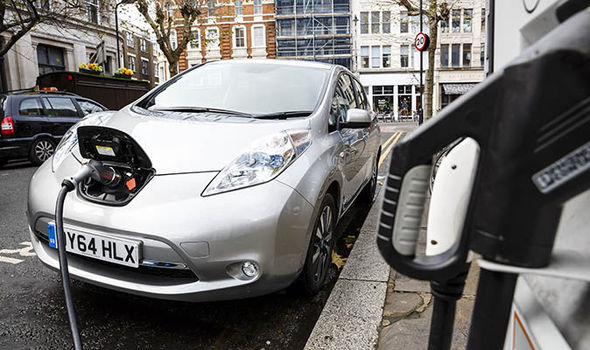Electric dream or reality?

Given the battle many city centres are facing to reach safe air quality standards, not many people would argue that the move towards electric vehicles is a bad thing. Only recently, a report by the Environment Department (Defra), revealed that the M60 here in Manchester is one of the major motorways in the UK with dangerously high pollution levels. In light of what were pretty ghastly figures, the UK Government decided to mimic France. They have announced that all sales of new diesel and petrol cars will be banned by 2040, making way for the electric vehicle revolution. Yet, with energy security being one of the most salient issues of our time, does the North of England have an energy and infrastructure base that can deal with the increase in capacity, and will consumers be the ones left to foot the bill?
Energy security
The National Grid has predicted that the move towards EVs will further increase our dependence upon imported electricity. At present, we import around 10% of our electricity. This is expected to increase to around one third. Norway on the other hand, the eighth largest exporter of oil and the third largest exporter of gas, with minimal energy security issues, is leading the way in the electric vehicle revolution. It currently hosts significantly more electric car charging points than the UK, yet with a population that is only double the size of Greater Manchester.
Clearly, there is a strong correlation between having a secure energy supply, and having the capacity to host electric cars, with 40% of Norway’s cars now running on electricity. From a consumer perspective, successive Governments will need to keep on pursuing renewable energy projects alongside nuclear and shale gas production in order to fend off high import prices. If this can be achieved, natural market forces will push down the price of electric cars and provide the UK with the armoury to adopt the transition to 100% electric vehicles.
Catch 22
However, it has also been estimated that growth in electric vehicles could see a peak electricity demand which is higher that the capacity of the Hinckley Point C nuclear plant. This comes at a time when global renewables are growing, but only to offset the decline in nuclear production overall. If the UK wants to reduce its CO2 emissions and have the capacity to host electric vehicles and charging points, it needs to decrease its share of energy it produces from fossil fuels, and increase the share from renewables, nuclear energy and greener gas (shale). Unfortunately, while renewable energy’s share has increased by 4-5%, nuclear energy’s share has decreased by approximately the same (4-5%), meaning what we don’t produce from nuclear or greener fossil fuel such as shale gas, is reluctantly produced by fossil fuels such as coal and oil. The government will therefore need to build multiple power stations and exploit alternative forms of energy to support the ambitious 2040 target.
Infrastructure
Removing 15 million diesel cars from the roads in 23 years will be a huge challenge, and is likely to have a considerable hit on consumers. The ideology of 100% electric vehicles is magnificent, but the practicality and cost is not. Much like the Government’s promise of the electrification of the Manchester to Leeds train link, significant investment will be required to install charging points across the country, including fast-charge points. This will require both high levels of investment and a more secure energy supply, with the National Grid already dreading the thought of “coping with a mass switch on after the evening rush hour”. It will now be the task of combined authorities such as Transport for the North to lobby for their equal share of the 250m central pot ring-fenced for EV infrastructure. Once that is achieved, local authorities should begin to think seriously about their energy bases and not shy away from publicly controversial industries such as Nuclear and Wind.
Selected industry experts bring you insight and expert advice, across a range of sectors.
Subscribe for free to receive our fortnightly round-up of property tips and expertise
Selected industry experts bring you insight and expert advice, across a range of sectors.
Subscribe for free to receive our fortnightly round-up of property tips and expertise





